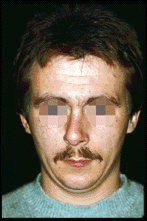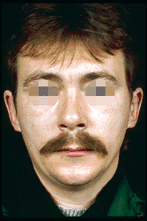 Figure 2a |
 Figure 2b |
Plastic surgery of the nose is thought to be the most difficult among all the plastic cosmetic operations. Most surgeons consider a rhinoplasty a significant challenge, as it requires not only considerable artistic sensibilities but also scientific understanding of function. In my practice, I see numerous patients still legitimately concerned about their nasal appearance despite having undergone multiple operations by more than one surgeon. Fig. 7. Special techniques and considerable surgical experience are needed for successful treatment of such cases. Tissue grafts with material being harvested from the nasal septum, ear cartilage or iliac crest Fig. 8, are sometimes used together with suitable synthetic implants to rescue some of these ravaged noses.
In most instances, improvement or almost total restoration is possible. Naturally, the risk of complications and a need for further treatment is greater in patients having revision surgery than in those undergoing first correction. There is a higher risk of skin showing permanent redness or uneven surface. Subcutaneous infections although extremely rare, may occur. The grafts and implants may require reinsertion as they could be extruded or displaced. Despite all the potential problems, this group of patients can be significantly helped.
 Figure 2a |
 Figure 2b |

 Figure 3a |
 Figure 3b |
 Figure 3c |
 Figure 3d |

 Figure 4a |
 Figure 4b |
 Figure 4c |
 Figure 4d |
